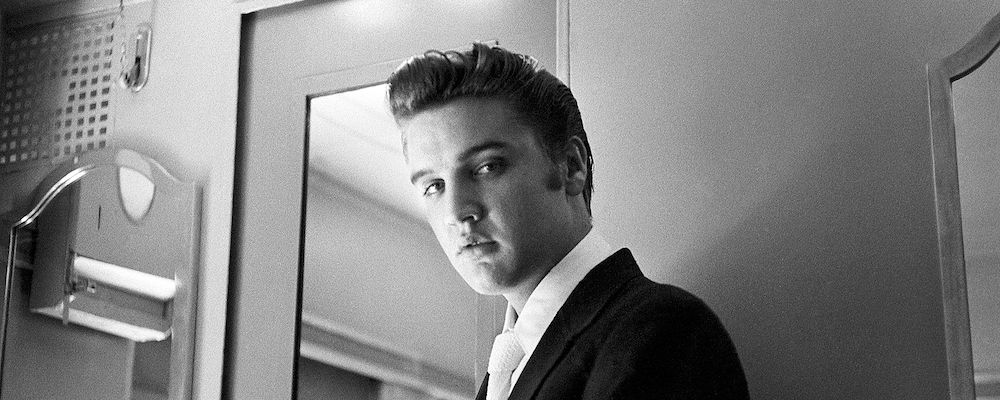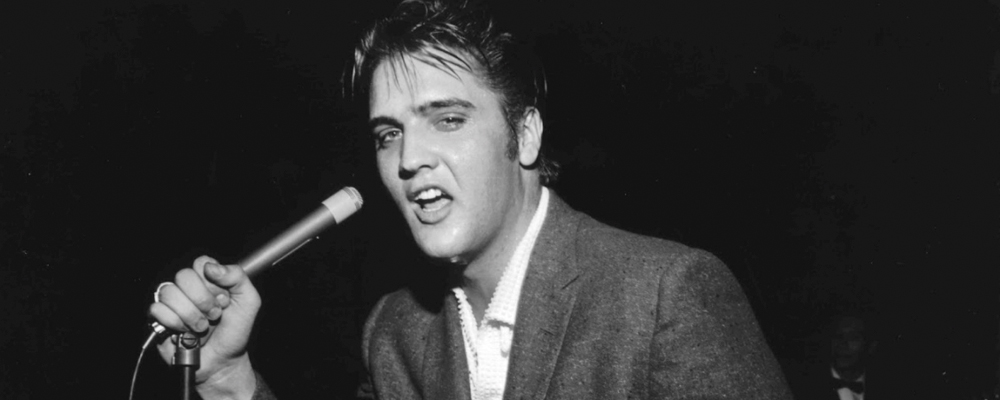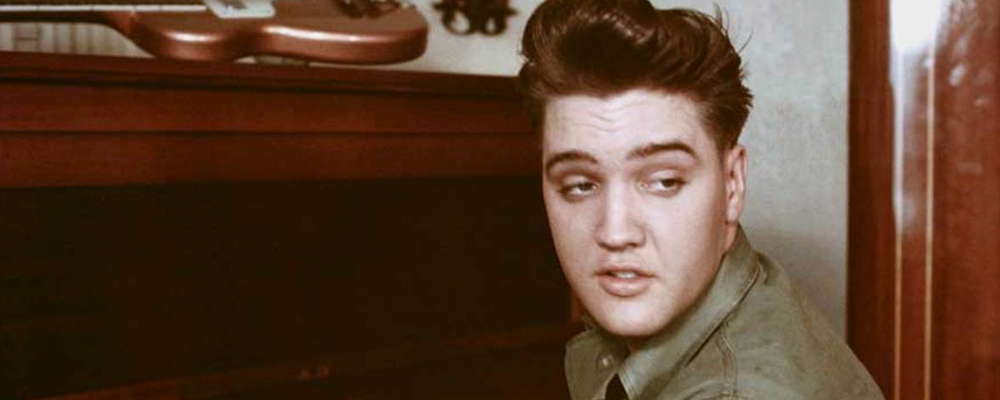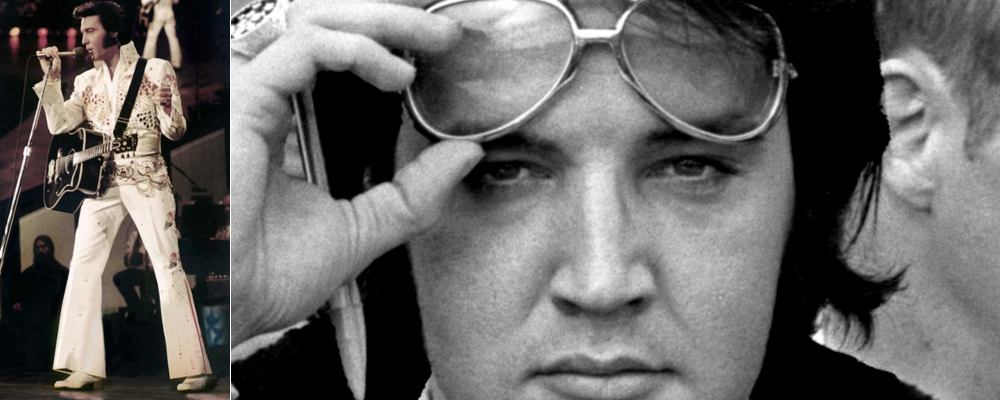‘Elvis Presley: The Searcher’ Journeys Deep Into the Life of the Rock ‘n’ Roll Pioneer
Alci Rengifo
Elvis Presley has inspired countless documentaries both large and small. Yet HBO’s “Elvis Presley: The Searcher” sets itself apart from the rest. It is not interested in merely flash, scandal or gossip, but strives to present a wide chronicle of the man. A two-part documentary, this is a meditation on Presley’s life and his place in the history of popular culture, including the evolution of American music in the 20th century. It strives to show that there was a unique individual behind the deep pool of a voice. He found himself swept by history too soon in his life, but right on time to impact the world.
The documentary begins with footage of Elvis’s legendary 1968 comeback special, opening in a period of doubts and a changing music scene. Then we are taken back to the American south of the 1930s, when Elvis was growing up with his working class parents in Tupelo, Mississippi before moving to Memphis, Tennessee. His early love of music, especially gospel and rhythm and blues, plant the seeds for his first tries at being a musician once he becomes an adult. He ends up at Sun Records, founded by Sam Phillips, where he cuts his first records. From there the rest is history as Elvis becomes a local and then national sensation, especially once Colonel Tom Parker becomes his manager. Elvis signs with RCA, makes a splash on television and terrifies parents everywhere by being one of the pioneers of rock n’ roll. The second part chronicles Elvis’s uncomfortable career as a kitsch movie star as he feels the times changing and wants to experiment with new sounds and reconnect with audiences.
One of the joys of watching this documentary is how director Thom Zimny explores the evolution of Presley’s sound via the absorption of country, gospel and black rhythm and blues. Rock n’ roll was the spawn of a hybrid of nearly every major sound of the American songbook. The opening sections are a tour of American society both culturally and socially in the early 20th century, when segregation remained the rule yet music itself began crossing over. As the documentary puts it, rock n’ roll is born in fevered Pentecostal services on Sunday morning. Elvis absorbed the sounds and later filtered them through new combinations that produced what became his iconic recordings.
The portrait that emerges of Elvis is of an artist who found sheer pleasure in singing anything that caressed his ear. Bruce Springsteen, Emmylou Harris and Tom Petty give their voice over observations of the very nature of the king’s talent, his impressive vocal range and evolving features of his recordings. Sections judiciously discuss the very fabric of classic albums like “Elvis is Back” and “From Elvis in Memphis.” Special emphasis is also given to Elvis’s gospel albums and their influences. Famous for his swinging hips and immortal snarl, it is easy to forget the man had a tremendous voice. He had a tenor range subdued for pop, which comes across so richly in a song like “It’s Now or Never.” Even when he’s forced to sing on factory product movies the talent shines. The soundtrack is itself a detailed panorama of the different stages of Elvis’s career. It includes rare cuts like “Blue Moon of Kentucky,” foot-stomping gospel numbers like “Swing Down Sweet Chariot,” and movie numbers like “Crawfish.” The instant classics like “Suspicious Minds” and “Heartbreak Hotel” are here too. The songs are enriched by the shared back stories. Priscilla Presley comments on how recording “Burning Love” was actually a hard experience for Elvis, who was suffering from depression at the time. His early guitarist reveals how the legendary performance of “Hound Dog” on the Milton Berle Show became a tricky, nerve-wracking improvisation when Elvis spontaneously slowed the song down without warning.
“Elvis Presley: The Searcher” makes no attempt at portraying the well-known warts of its subject. You won’t find the Elvis who reportedly shot up televisions in this documentary, or any mention of the rumored sexual escapades (Priscilla Presley is credited as producer after all). The famous handshake with Nixon is also missing. But stripped of sensationalism, Elvis comes across as a rather nice kid who loved music and found himself consumed by the marketing machine his image produced. Strongly attached to his family, the movie endearingly explores the relationship between Elvis and his mother. His marriage is less covered, with Priscilla simply sharing that it was hard to maintain a family amid the swirl and lights of fame and Presley’s drive to perform. Zimny tells the story with an elegant use of vintage footage, archived historical records and rarely scene photographs. There is a cinematic force to the editing, similar to early Ken Burns documentaries. An almost haunting quality is achieved when the images are used to build a profile of Elvis Presley.
If there is a villain it is Tom Parker, who is portrayed as controlling and obsessed with pure commercialism. When Elvis wants to expand his musical range Parker forces him to keep making recycled movies. To be fair Parker is allowed to defend himself through old audio interviews where he insists he never forced Presley to make a single film. What is undisputed is that Parker lied about his Dutch immigration status, which is blamed for his insistence on keeping Elvis from ever touring abroad. There is a hint that being turned into a high pressured product machine is what made Elvis find solace in uppers and sleeping pills. He achieves the heights of fame and fortune, but in the end feels eternally trapped.
This documentary is a chronicle of a life lived as well as a celebration of American music. At its core it is about the joy of performing. A moment from the taping of Elvis’s 1968 special, when he sits around with his old band performing a growling “Baby What You Want Me to Do” seems to capture the essence of the man, expressing all we need to know about his talent. The man loved to do what he did, it kept him going even amid downturns, and changed the way the world listened to itself.
“Elvis Presley: The Searcher” premieres with two back-to-back episodes April 14 at 8 p.m. ET on HBO.





